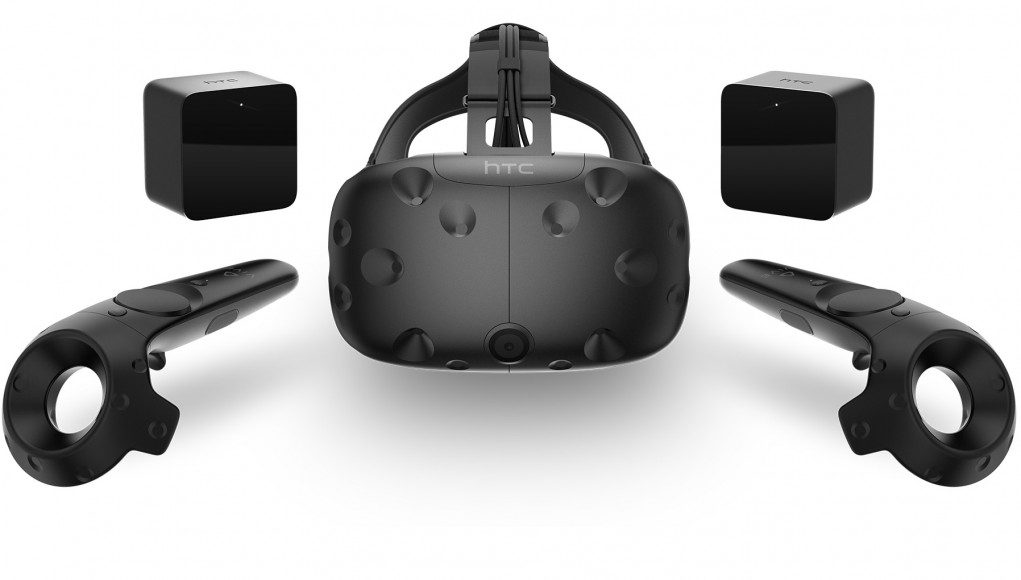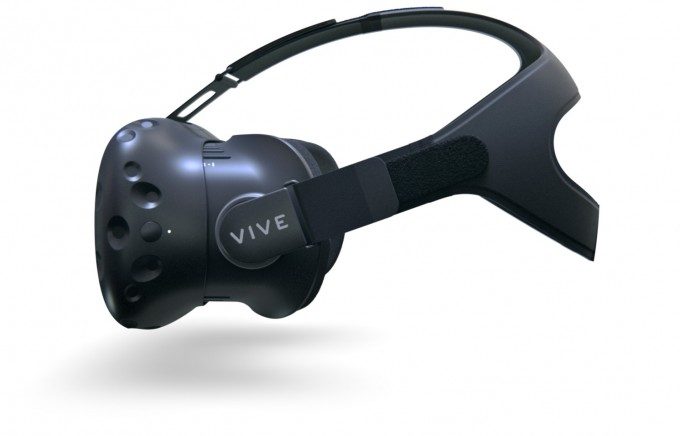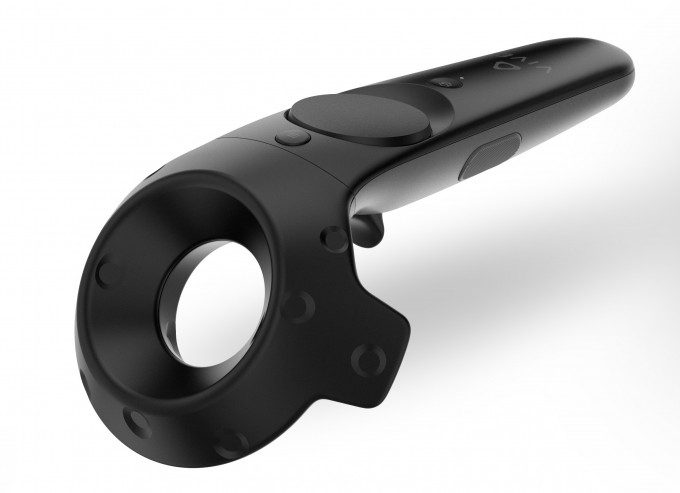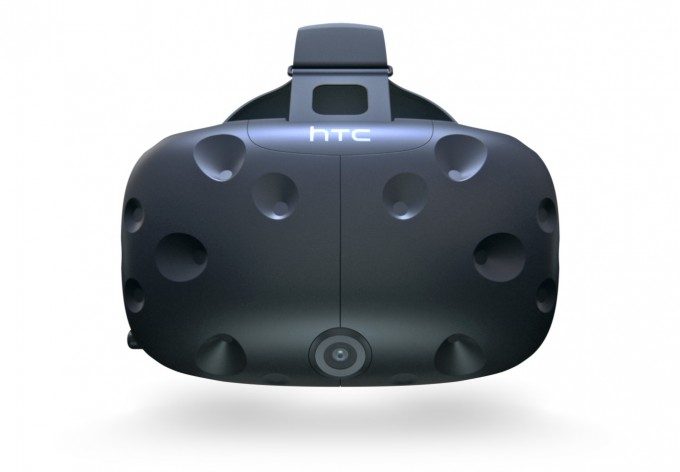HTC have finally officially announced the price of the ‘Consumer Edition’ of their Valve SteamVR powered virtual reality solution. The HTC Vive will cost a cool $799.
Those eagerly awaiting news on how much they can expect to have to lay down to own a piece of Valve’s vision of VR’s future can rest easy. HTC have announced that their Vive VR system will ship from April 1st and cost $799. Pre-orders have also been reaffirmed as going live February 29th with a more precise time of 10am Eastern (7am PST / 3pm GMT).
For your 800 bucks, this is what you’ll get in the box:
Hardware
- 1 x ‘Vive’ VR headset
- 2 x SteamVR Wireless Controllers
- 2 x ‘Lighthouse’ Laser Base stations (for positional tracking)
Games:
What’s new?
The only new feature announced today is Vive Phone Services, the ability to attach your phone via Bluetooth direct to the Vive VR headset to make and take calls and send SMS messages. The theory? Immersion breaking headset removals are irritating. Giving you the option to remain in VR whilst remaining connected to the real world is the key. And given HTC’s long history as a mobile phone manufacturer, the move probably shouldn’t be surprising.
Other than Vive Phone Services, the ‘Consumer Edition’ looks essentially identical to the ‘Pre’ edition we got our hands on at CES last month and which shipped to developers recently. Upgrades from the original ‘Developer Edition’ include a lighter, more ergonomic form factor and redesigned SteamVR controllers. The biggest technical addition is a front-facing camera for passing through a view an augmented overlay of the real world inside your VR experience.
HTC are positioning the Vive as a complete ‘room scale’ VR solution, that is one which ships with everything you need to enjoy their particular brand of tethered, ‘free roaming’ virtual reality is all in the box from day one.
HTC’s message is a clear effort to differentiate themselves from the Oculus Rift, the only other desktop PC VR solution in the running at the moment. Oculus’ excellent ‘Touch’ motion controllers have unfortunately been delayed until the 2nd half of 2016, forcing the company to ship their Rift consumer VR headset with an Xbox One gamepad.
The unique selling point of the SteamVR powered Vive system is its focus on ‘room scale’ VR. The kind of standing, walking, ducking and even running virtual reality experiences that Oculus are at present shying away from, even if they’re technically capable of delivering them with the Rift. This differentiator is strong, but is tempered by the fact that, despite SteamVR’s ability to fit many virtual experiences to different room sizes, not everyone will have enough space to make full use of roaming VR.
Nevertheless, despite the seemingly high $799 price tag, the HTC Vive Consumer Edition does represent a sizeable amount of technology and functionality for your money. We’ll dig into precisely how big in an article to come soon.










